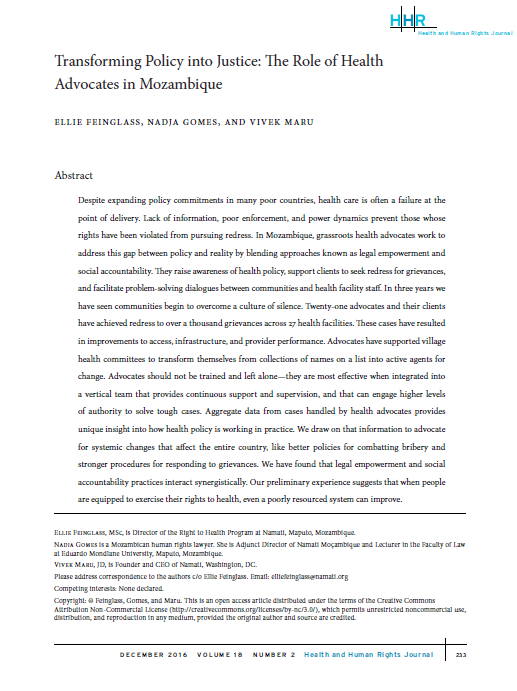Resource information
Despite expanding policy commitments in many poor countries, health care is often a failure at the point of delivery. Lack of information, poor enforcement, and power dynamics prevent those whose rights have been violated from pursuing redress. In Mozambique, grassroots health advocates work to address this gap between policy and reality by blending approaches known as legal empowerment and social accountability. They raise awareness of health policy, support clients to seek redress for grievances, and facilitate problem-solving dialogues between communities and health facility staff. In three years we have seen communities begin to overcome a culture of silence. Twenty-one advocates and their clients have achieved redress to over a thousand grievances across 27 health facilities. These cases have resulted in improvements to access, infrastructure, and provider performance. Advocates have supported village health committees to transform themselves from collections of names on a list into active agents for change. Advocates should not be trained and left alone—they are most effective when integrated into a vertical team that provides continuous support and supervision, and that can engage higher levels of authority to solve tough cases. Aggregate data from cases handled by health advocates provides unique insight into how health policy is working in practice. We draw on that information to advocate for systemic changes that affect the entire country, like better policies for combatting bribery and stronger procedures for responding to grievances. We have found that legal empowerment and social accountability practices interact synergistically. Our preliminary experience suggests that when people are equipped to exercise their rights to health, even a poorly resourced system can improve.

